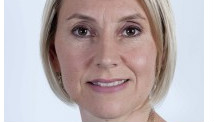Prime Minister Silvio Berlusconi delivers a speech during a campaign rally in Rome on January 25, 2013.
STORY HIGHLIGHTS
- Brilliant minds are still trying to figure out the financial impact of Italy's election
- The lack of certainty is seen as a negative for Italy -- and the eurozone
- Instability could reignite the eurozone crisis
- But it depends on what deal will be done, and how the markets will respond
Editor's note: Louise Cooper is a financial blogger and commentator who regularly appears on television, radio and in print. She started her career at Goldman Sachs as a European equity institutional sales person and then become a financial and business journalist. She now writes CooperCity.
London (CNN) -- Brilliant minds across the financial world are still trying to work out the implications of the Italian election result.
For the time being, the best answer is that it is probably too soon to tell. After Tuesday's falls, a little stability has returned to markets, possibly because everyone is still trying to work out what to think.
Credit ratings agency Moody's has warned the election result is negative for Italy -- and also negative for other indebted eurozone states. It fears political uncertainty will continue and warns of a "deterioration in the country's economic prospects or difficulties in implementing reform," the agency said.
For the rest of the eurozone, the result risks "reigniting the euro debt crisis." Madrid must be looking to Italy with trepidation. If investors decide that Italy is looking risky again and back off from buying its debt, then Spain will be drawn into the firing line too.
Can the anti-Berlusconi save Italy?

Louise Cooper, of Cooper City
Standard & Poor's stated that Italy's rating was not immediately affected by the election but I think the key part of that sentence is "not immediately."
At the same time Herman Van Rompuy's tweets give an indication of the view from Brussels: "We must respect the outcome of democratic elections in Italy," his feed noted.
Really? That's a first. The democratically elected Silvio Berlusconi was forced out when he failed to follow through with austerity after the European Central Bank helped Italy by buying its debt in autumn 2011.
"It is now up to Italian political leaders to assume responsibility, compromise and form a stable government," Van Rompuy tweeted.
Did he see the results? The newcomer and anti-establishment comedian Beppe Grillo refuses to do a deal and yet he is the natural kingmaker, polling at 25%.
"Nor for Italy is there a real alternative to continuing fiscal consolidations and reforms," he continued.
Economically yes, but the Italian electorate disagree. And for the time being, Italy has a democracy (of sorts).
Finally: "I am confident that Italy will remain a stable member of the eurozone."
He hopes...
The key to whether the crisis reignites is whether investors begin to back away from lending to Italy. If so, this will be the big test of the ECB's resolve to save the euro.
Read more: Euro crisis coverage
The key thing to look at is Italian bonds, because if borrowing costs rise from 4.8% for 10-year money currently to nearer 6%, then Italy will start to find it too expensive to borrow.
The trillion euro question is if the ECB will step in to help even if it cannot get the reforms and austerity it demands (because of the political situation). That is the crux of the matter. And there will be many in the city today pondering that question.
Clearly in financial markets, taking on a central bank is a dangerous thing to do. Soros may have broken the Bank of England on Black Wednesday 1992, making billions by forcing sterling out of the EMU, but that was a long time ago.
Italy avoids panic at bond auction
What we have learnt from this crisis is not to "fight the Fed" (or the ECB). Last summer, the ECB's chief Mario Draghi put a line in the sand with his "whatever it takes" (to save the euro) speech.
But as part of that commitment he stressed time and time again that any new help from the ECB comes with conditions attached. And those conditions are what have proven so unpalatable to the Italians -- austerity and reform.
So we have two implacable objects hurtling towards each other. The political mess of Italy and the electorate's dislike of austerity and reform (incumbent technocrat Mario Monti only polled 10%).
So what happens next? The status quo can continue if Italian borrowing costs do not rise from here and therefore Italy does not need ECB help.
If markets continue to believe in Draghi and Brussels that the euro is "irreversible," then investors will continue to lend to Italy. Yes, markets will be jittery and fearful, but Italy will eventually sort itself out politically.
The big advantage for Italy is although it has a lot of debt, it is not creating debt quickly (like Greece, Spain or even the UK). And as I said yesterday on my CooperCity blog, the positive outcome from all this could be that Brussels backs off from austerity, which would be a good thing.
However, the basic rule of finance is that high risk comes with high return. Soros took a huge gamble against the British central bank but it reportedly made him a billionaire overnight.
There must be a few hedge funders looking at the Italian situation with similar greed in their eyes. If he wants to save the euro, it is time for Mario Draghi to put the fear of God back into such hearts.


